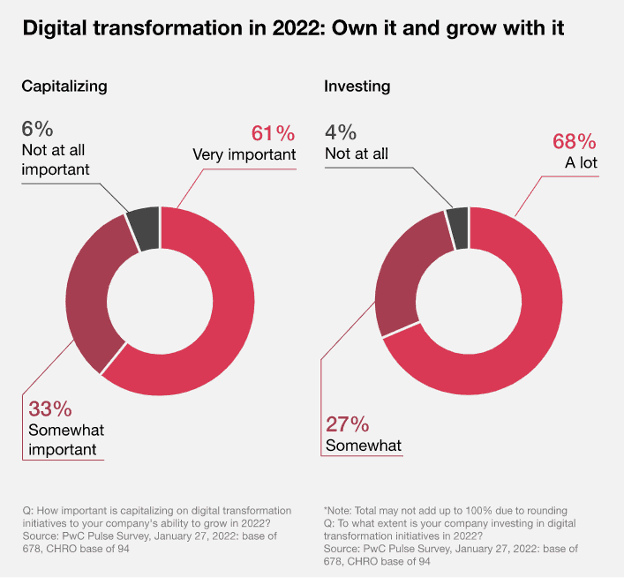The recruitment field has changed in the past several years, and so have recruiters. Top talent and even those in the middle are taking advantage of the Great Resignation to find roles and companies they sync with.
Some are searching for growth opportunities, while others want a position that aligns with their personal beliefs.
Whatever the candidates' goals, it's up to recruiters to select the ideal fit for the companies they represent. Whether you're new to recruitment or not, post-pandemic talent acquisition is a unique playing field that many professionals are looking to thrive in.
Let's uncover what you can do to become a successful recruiter in 2022 and beyond.
Developing these skills will serve you well in your new recruiter role
Excellent organization and communication are ideal skills for a good recruiter. But you must extend beyond the basics to excel in recruiting today.
Here’s a look at the qualities that talent acquisition (TA) professionals will need in the first recruiting role and beyond.
Relationship building
Relationship building is key in almost every career path, and it's absolutely central to recruitment. Even if you're switching to a recruiter career from a different field, relationship building is a transferable skill that will serve you well in your new role. It requires you to be personable and easygoing to earn the trust and interest of candidates.
As RippleMatch’s Tammy Hart mentioned in our recent recruiter webinar, being your authentic self with candidates will, in turn, make them feel more comfortable being their authentic selves.
“Empathy and communication are key for recruiters right now, letting them effectively guide companies toward the shifts they need to make, as well as enticing passive job seekers to apply to your open roles," adds Jon Hill, Chairman and CEO of The Energists.
But what happens when an interviewee isn’t the right fit? Knowing how to break it to them gently without cutting ties (and burning bridges) is crucial. You never know if they may turn out to be the perfect fit for another opportunity that arises.
In your message or call, be empathetic and encouraging. For example, offer to keep in touch about future openings.
“You have to care about connecting professionals to careers. Recruiters walk a thin line between the business and candidates — we are responsible for advocating for both sides." - Kate Zimmer, Senior Recruiter at Varian.
Pipeline building
Connecting and establishing relationships with talent builds a pipeline you can tap into anytime. Waiting until a new role opens to begin searching for candidates is unnecessary stress and prolongs talent acquisition.
Corporate recruiters can prevent this by proactively anticipating future job openings in your organization. For example, are there people on the verge of retirement? Or maybe there are new department or role openings in company discussions.
“As you make connections, you get in contact with a candidate and they might say they aren’t looking right now. Let them know that’s perfectly fine. We still want to connect with them because we are constantly hiring. It’s not the end of the conversation and it’s not the end of the story,” says Joshua Clouden, Associate Recruiter at GR0.
By building and nurturing a talent pool, you’ll always have candidates to reach out to in these moments. Understanding your pipeline will also help you communicate expected time to hire, which is key for managing expectations with hiring managers.
Tough skin
Some are born with it—others have to develop it. Either way, tough skin is a must-have to succeed in the recruitment industry. There will be moments when you feel disrespected and betrayed.
"I‘ve gotten candidates to an offer after weeks of going back and forth with interviews, only to ghost me or decline the offer. It’ll hurt because you feel like you have a good relationship with them. But people have options, and sometimes, they don't follow through. You have to be okay with that and move on to the next candidate," says Karen Williams, Founder and CEO of Cultural Avid.
Joe Troyer of ReviewGrower advises that while candidates may ghost you, he doesn't agree that recruiters should automatically forget about them.
“What I like to do is to send an ultimate follow-up email. In that email, I outline everything, trying to evaluate where I went wrong in the process because I take it as a lesson. Also, if the company’s budget allows, I offer them more salary or incentives. I’ve seen good results doing that," says Joe.
It’s challenging building relationships with people only to have them diminish trust. Just remember, it’s not about you — candidates are looking out for their best interests.
With this mindset, you’ll create thicker skin to handle rejection when it occurs.
Curiosity
When reviewing resumes and conducting interviews, great recruiters look deeper than the skills they bring. Employees stay longer with employers when they match the company's culture.
Dive into the characteristics and values of the applicant to see if they align with the organization. For instance, design interview questions to pinpoint these attributes to identify the best candidates.
Plus, look beyond a candidate’s primary experience to see their potential at the organization you’re recruiting for.
“Diversify your search criteria. By broadening your view of what a good fit is, even for high-demand jobs, you’ll find that there are people who didn’t go a straight route who will get you where you want to be.” - Wendy Bellus, Chief People Officer at Nardello & Co.
What does a recruiter's average day look like?
A day in the life of a recruiter is busy, if not downright hectic. There are people, meetings, and documents to manage, requiring exceptional organizational and planning abilities.
“No two days are exactly alike in recruitment. We have to be proactive, seeking out the best candidates, and we have to be responsive as we work to meet the needs of our clients. Balancing things between job seekers and employers keeps life interesting,” adds Rowan O’Grady, President of Frank Recruitment Group.
On most days, you’ll perform a mix of activities, including:
-
Scheduling interviews
-
Reviewing resumés
-
Catching up with hiring managers and candidates
-
Keeping up with the latest developments in technology
Top recruiters also spend a lot of time on networking platforms like LinkedIn, reviewing profiles and scheduling calls. As a recruiter, you’re a liaison between the TA team, candidates, and hiring managers—giving everyone updates and feedback. If you’re at a recruiting agency, you may also have multiple clients to juggle and prioritize.
To keep everything in order, you’ll need excellent time management skills.
“Time management is an effective practice I’ve come to rely on. I allocate blocks of time throughout my day and week to scan for urgent emails, review resumes, conduct interviews, follow up with candidates, brief hiring managers, attend meetings, contribute to special projects, and complete administrative tasks,” says Kate Zimmer.
How to recruit successfully if you're new to the field
Your recruiting career path may come with its ups and downs, but with the right strategies and tools, it’s possible to overcome many challenges.
Here are tips from experienced recruiters to help you thrive in your first recruiter job.
Think outside the box
Sticking to the same circles and techniques won’t help you reach a broader talent pool, so try different techniques to get better results.
"Stay positive and get creative in your approach to finding talent. Think outside career fairs and job postings. How can you showcase your company? Get people excited about working there and give them FOMO but make sure your company can deliver on what you’re pushing out," adds Karen Williams of Cultural Avid.
Target passive candidates
Some people aren’t actively looking for work but will consider leaving their employer if the right opportunity comes along. By targeting passive candidates, you can enrich your pipeline and find ideal applicants faster.
Gerald Lombardo, Co-Founder of The Word Counter says “targeting passive candidates has proven to be a challenge in 2022. The secret is to be able to identify these candidates and be able to contact them through their networks. The key is to think outside the box and be persistent in finding talent that isn’t active in their job search.”
Focus on DEI efforts
Diversity, equity, and inclusion (DEI) are at the heart of many company initiatives, so creating a diverse talent pool is recommended. According to Lever, his is what 50% of recruiters are prioritizing post-pandemic.
It’s easier to determine diversity ratios using automated tools like Fetcher, which uses machine learning and human insights to ensure candidates from underrepresented and diverse backgrounds get in front of hiring teams. Plus, it provides updated, enriched candidate profiles, so you don’t have to waste hours hunting down personal email addresses.
Get comfortable with technology
Data-driven HR is becoming the new way to manage HR processes. The stats from a PwC report (shown below) indicate that 68% of Chief Human Resource Officers (CHROs) are investing in digital transformation in 2022. And nearly half will increase automation processes.

HR technology automates your processes, so it’s easier and faster to search for, schedule interviews with, onboard, and engage with candidates. Everything’s managed digitally, so you stay in lock-step with applicants throughout the hiring process.
“Partner with your candidates as their career consultant. Understand exactly where they are with their applications, interviews, and potential offers to help you make the best placement. Setting clear expectations and fostering open communication will lead to strong relationships and ultimately successful outcomes,” adds Raquel Flores, VP of the Legal Practice Group at Robert Half.
This is easier to do using Fetcher, a tool designed for recruiters. It helps you build a pipeline of qualified, diverse candidates -- without spending hours a day manually sourcing. And it expands outreach using automated email campaigns, so you don’t have to worry about consistent communication with candidates or setting follow-up reminders.
We're here to empower recruiters throughout their careers
There’s no need to learn technical booleans. With the right technology, you can focus your recruiter career around building critical soft skills. With Fetcher, you'll spend more time on what matters most: connecting with candidates and hiring managers, and ensuring an exceptional hiring experience.
Hit the ground running with an automated system that’ll strengthen your career as a recruiter. Schedule your demo to see how Fetcher can help you build a successful sourcing and outreach strategy, and set you up for success as a recruiter!
About Fetcher
Our mission is to help you engage talent that will transform your business aspirations into reality. Great talent is hard to find - that's why we offer a talent sourcing platform that not only gets your brand in front of the right candidates but also gives you a competitive edge in talent acquisition.
Begin building a relationship with your next great hire today and let Fetcher handle the rest. Learn more.




